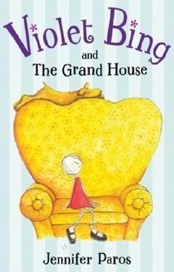You are the Important Part: The Power of Our Interest
by Jennifer Paros
“If you always do what interests you, at least one person is pleased.”
When I was a child, my mother took me shopping for shoes. I tried on a pair; she pressed on the toes, squeezed the sides, and instructed me to walk around the store. Then she asked, “Will you wear them?” I stared down at my feet, hoping to find the answer there. The question was difficult. What if, for some reason, I did not wear them? It seemed important - maybe too important. And that importance weighed on me. The more I pondered the question under the dominant influence of my mother’s interest and concern, the more tentative I became.
During my school years, I believed almost everything was important. In high school, I had trouble sleeping for a year because of that belief. There is a way to redefine importance so it doesn’t lead to indecision, insecurity, manic behavior and/or sleep deprivation. Focusing on interest more than importance can put us in a naturally engaged, unpressured position. For most of high school I didn’t think I was interested in anything. In truth, I was focusing so much on assignments and grades and so little on what was compelling to me, I didn’t even realize just how interested I was. I had accidentally taken myself out of the equation.
Our human minds are capable of making us feel wobbly about almost anything, and the story of importance sets the stage for just how much we wobble. A so-called important decision is much harder to make than a seemingly unimportant one. And we believe things are important when we think our happiness is somehow on the line, and that the power to be happy lies outside of us.
Any time we think we have no power, we’re wrong. And the degree to which we believe we have no power equals just how unhappy we are. We may not have total control, but we do have power. That doesn’t necessarily mean we can make things the way we want in the moment. More likely, through a shift in perspective and a series of small, new choices, we will move in the direction of what we want. Whether or not conditions change immediately, we will feel better immediately because we’re now aware of our power. We no longer believe a pair of shoes or someone else’s opinion can determine whether or not we’re happy. We’re freed to take chances and play. Unhappiness always involves believing we have no power, not just over the situation at hand, but more importantly, over how we feel.
“Follow your heart and make it your decision.”
Recently, my fourteen-year-old niece was telling me about her Literature and Composition class. The teacher is preparing them to write a short story. Though an avid reader, my niece does not like to write and is not looking forward to the assignment. I encouraged her to take note of the stories she loves and those she would like to read (and anything else about which she’s excited); this is the content and direction that can call her to her own writing and voice. Though her teacher’s criteria and ideas about the assignment are relevant, it’s most important for my niece to pay attention to herself. We have the ability to be our own compass, but if we don’t honor and follow what captivates us, we can easily lose direction, decisiveness, and the willingness to move forward.
My son, who is twenty, recently told me that he knows what to do in his life but does not have the courage to do it. The next steps seem so important that in their contemplation, he’s forgetting himself. He’s not focused upon what engrosses and enlivens him. Courage is less of an issue when we’re feeding what interests us, which can naturally move us to action. My son does not lack courage; he’s just made the next action steps too important and his genuine interest not important enough.
Creatively, interest inspires and heartens us to take the next step; it leads us to decisiveness. It also indicates the stamina and endurance we’ll most likely have for a project. Paying attention to and valuing what engages us is the name of the game, just as much as sitting down to do the work. Things that make us laugh, that are endearing to us, lovely to us, inspiring, gripping, or just feel right– those constitute the road map both in our creative work and our day-to-day lives. And those are important.
Jennifer Paros is a writer, illustrator, and author of Violet Bing and the Grand House (Viking, 2007). She lives in Seattle. Please visit her website.

